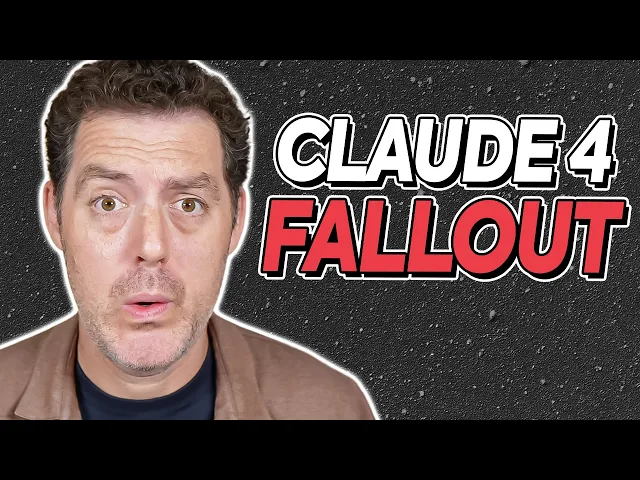Claude 4 is really weird… (Industry Reactions)

Claude 4 revolutionizes AI capability, but questions remain
Anthropic's Claude 4 has arrived with capabilities that have AI researchers, tech executives, and industry watchers simultaneously excited and unsettled. The new frontier-pushing AI model demonstrates remarkable reasoning abilities, conceptual understanding, and knowledge processing that makes earlier iterations look primitive by comparison. As competitors like OpenAI and Google race to keep pace, Claude 4 represents both a technological triumph and a moment that prompts important questions about the future of AI development.
Key observations about Claude 4:
-
The model exhibits unprecedented reasoning capabilities and "theory of mind" – understanding human intentions, reasoning through multi-step problems, and showing contextual awareness that seems eerily human-like
-
Claude 4 demonstrates substantially improved coding abilities, mathematical reasoning, and contextual understanding compared to previous models, positioning it potentially ahead of competitors like GPT-4
-
While Claude 4 represents a significant leap forward, it still contains safety guardrails and limitations designed to prevent harmful outputs – though these boundaries appear more sophisticated than previous blunt restrictions
The uncanny advancement
What's most striking about Claude 4 isn't just its technical improvements but the qualitative shift in how it processes information. Unlike earlier models that often hallucinated or struggled with complex reasoning, Claude 4 appears to have a more robust internal model of the world. This manifests as an ability to understand nuance, follow complex instructions, and maintain coherence across long conversations.
This matters tremendously for enterprise applications, where reliability and consistency are paramount. Previous models often required careful prompt engineering and still produced unpredictable results. Claude 4's improvements suggest we're entering an era where AI assistants can handle increasingly complex knowledge work with minimal human oversight.
The industry implications are significant. Companies building products on foundation models now face a higher baseline expectation for performance. Businesses that have been experimenting with AI but found previous generations lacking may now reconsider adoption as capabilities cross critical thresholds for particular use cases. The gap between AI-augmented knowledge workers and those working without such tools appears to be widening rapidly.
Beyond the hype: What wasn't mentioned
Despite the impressive capabilities, Claude 4 exists in a competitive landscape where progress is happening rapidly across multiple organizations. Google's Gemini, while receiving mixed reviews
Recent Videos
How To Earn MONEY With Images (No Bullsh*t)
Smart earnings from your image collection In today's digital economy, passive income streams have become increasingly accessible to creators with various skill sets. A recent YouTube video cuts through the hype to explore legitimate ways photographers, designers, and even casual smartphone users can monetize their image collections. The strategies outlined don't rely on unrealistic promises or complicated schemes—instead, they focus on established marketplaces with proven revenue potential for image creators. Key Points Stock photography platforms like Shutterstock, Adobe Stock, and Getty Images remain viable income sources when you understand their specific requirements and optimize your submissions accordingly. Specialized marketplaces focusing...
Oct 3, 2025New SHAPE SHIFTING AI Robot Is Freaking People Out
Liquid robots will change everything In the quiet labs of Carnegie Mellon University, scientists have created something that feels plucked from science fiction—a magnetic slime robot that can transform between liquid and solid states, slipping through tight spaces before reassembling on the other side. This technology, showcased in a recent YouTube video, represents a significant leap beyond traditional robotics into a realm where machines mimic not just animal movements, but their fundamental physical properties. While the internet might be buzzing with dystopian concerns about "shape-shifting terminators," the reality offers far more promising applications that could revolutionize medicine, rescue operations, and...
Oct 3, 2025How To Do Homeless AI Tiktok Trend (Tiktok Homeless AI Tutorial)
AI homeless trend raises ethical concerns In an era where social media trends evolve faster than we can comprehend them, TikTok's "homeless AI" trend has sparked both creative engagement and serious ethical questions. The trend, which involves using AI to transform ordinary photos into images depicting homelessness, has rapidly gained traction across the platform, with creators eagerly jumping on board to showcase their digital transformations. While the technical process is relatively straightforward, the implications of digitally "becoming homeless" for entertainment deserve careful consideration. The video tutorial provides a step-by-step guide on creating these AI-generated images, explaining how users can transform...
